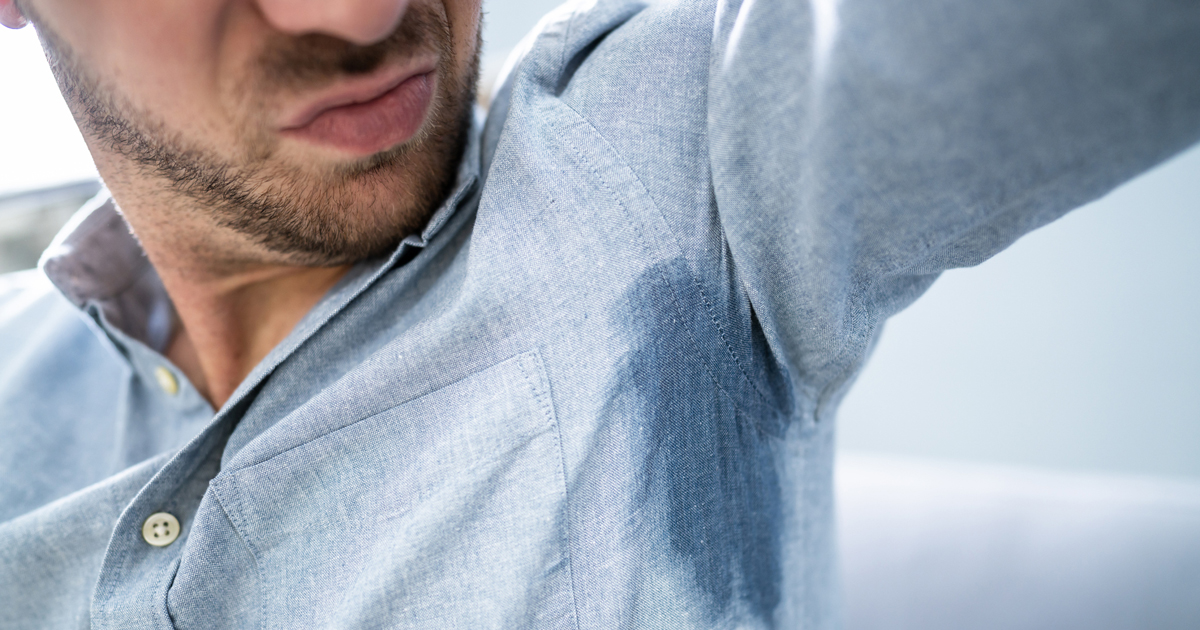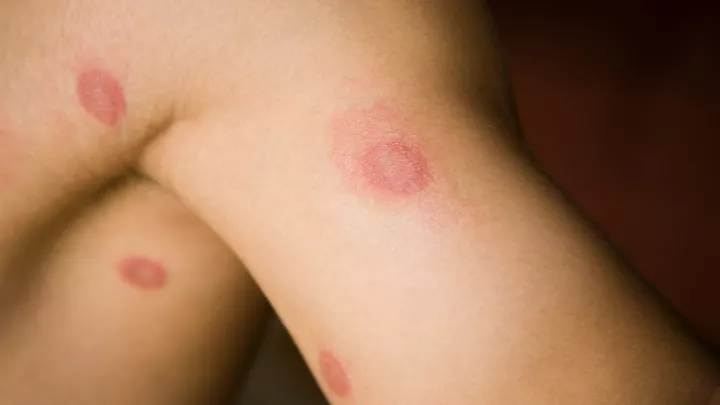What causes excessive sweating?

If you’re someone who deals with excessive sweating, you can relate to the irritation (and often embarrassment) of living with it. We asked Max Regester, a fourth-year University of Nebraska Medical Center student, to address our questions about the potential causes and treatment options for excessive sweating.
1. What are a few reasons someone may experience excessive sweating?
Sweating is our body’s natural way of regulating temperature and keeping us safe, especially in response to excessive heat. However, other factors such as emotional responses, social interactions, exercise or anxiety can also trigger sweating. For some individuals, sweating occurs at levels beyond what is typical for these situations. This condition, known as hyperhidrosis, involves excessive sweating that can interfere with daily activities and quality of life. While excessive sweating affects roughly 20% of the population, only about 2% to 5% have hyperhidrosis.
2. Are there different types of hyperhidrosis? How do they differ?
Yes, there are two distinct forms of hyperhidrosis:
Primary focal hyperhidrosis: This is the most common type seen by dermatologists. It typically begins at a young age and is localized to specific areas like the hands, feet and underarms. Although it is not dangerous, it can be a significant nuisance and debilitating in some cases. Genetics often play a role, as many people with this condition have family members who also experience it.
Generalized hyperhidrosis: This type causes excessive sweating across the entire body and is usually linked to an underlying medical condition or the use of certain medications. Unlike primary focal hyperhidrosis, generalized hyperhidrosis tends to appear later in life. It’s important to discuss this type of sweating with a health care provider to identify and address potential underlying causes.
3. Are there certain medications or medical conditions that may cause excessive sweating?
Yes, several medications and medical conditions can lead to excessive sweating, typically referred to as secondary hyperhidrosis. Unlike primary hyperhidrosis, which often begins in childhood or adolescence and affects specific areas, secondary hyperhidrosis usually presents later in life and causes generalized sweating across the entire body.
Some common causes of secondary hyperhidrosis include:
- Medications: Certain drugs, such as antidepressants, opioids, hormonal treatments and antipyretics, can induce excessive sweating as a side effect.
- Medical conditions: Underlying health issues like hyperthyroidism, diabetes, menopause, infections and neurological disorders can also trigger generalized sweating.
This list is far from comprehensive. If you experience a new onset of widespread sweating, it’s important to consult your doctor to identify and address any potential underlying causes.
4. Should a person be concerned if they experience a sudden onset of excessive sweating?
While occasional sweating is normal, unexplained or severe episodes could point to something more serious. If someone experiences a sudden onset of profuse sweating, it’s worth making an appointment with your doctor. Sudden onset diffuse sweating can also be linked to several medications and underlying conditions.
5. Are there treatment options for excessive sweating?
There are several ways to manage or treat excessive sweating, including topical medications, oral medications (pills), injectable medications like BOTOX®, treatments like miraDry® and more. Work with your doctor to find the best treatment for you.
Sweating is a natural and essential process, but when it becomes excessive, embarrassing, or starts to interfere with your daily life and self-esteem, it may be time to explore medical solutions.
Questions regarding rashes, acne, concerns with specific parts of the body, and consultations for skin care or cosmetic concerns can all be addressed via a video visit. Video visits allow for a real-time video conversation between you and a dermatology provider. Give us a call at 800.992.000 or schedule online.







